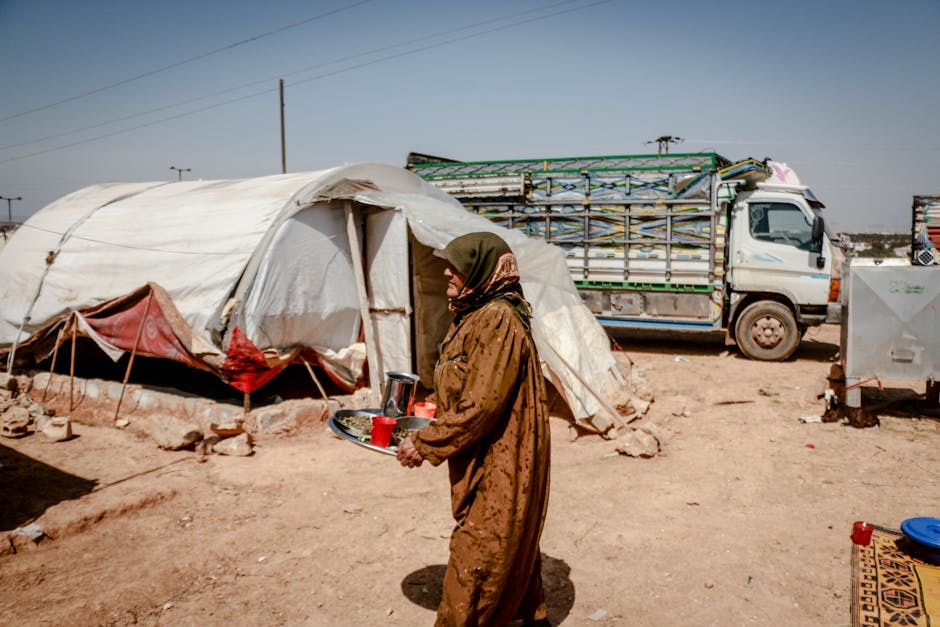A panel of food security experts confirmed famine in a part of Gaza. This dire situation could spread to more of the enclave within weeks.
International monitors have officially declared famine in the northern Gaza Strip. This declaration signals a critical escalation of the humanitarian crisis. Agencies cite widespread food scarcity and severe malnutrition among the population.
The famine declaration comes after months of increasing concern from aid organizations. Reports from the ground detail severe shortages of food, water, and medicine. Access for humanitarian aid convoys remains heavily restricted.
Millions of Palestinians are facing acute food insecurity across the entire Gaza Strip. The northern areas, however, are experiencing the most extreme conditions. Infant malnutrition rates have reportedly reached alarming levels.
The Integrated Food Security Phase Classification (IPC) is the standard used by global food security experts. Their assessments are based on rigorous data collection and analysis. These findings have been corroborated by multiple independent sources.
Access to clean water is also severely compromised. This exacerbates the health risks, particularly for children and the elderly. The lack of essential medical supplies further complicates efforts to treat malnutrition.
Grim Outlook Ahead
The situation in Gaza represents a catastrophic failure of humanitarian access. Experts warn that the current conditions are unsustainable. Urgent and unimpeded aid delivery is critical to prevent further loss of life.
The ongoing conflict has severely disrupted agricultural production and supply chains. Fishing and farming, traditional sources of food, have been decimated. This leaves the population entirely dependent on external aid.
Health facilities are overwhelmed and lack basic supplies. The spread of disease is a significant concern given the poor sanitation. Malnourished individuals are more susceptible to infections.
The scale of displacement means many families are living in makeshift shelters. These conditions lack the basic necessities for survival. Access to any form of nutritious food is a daily struggle.
Families are resorting to extreme measures to find sustenance. This includes consuming animal feed and foraging for edible plants. These are not sustainable or safe food sources.
The declaration of famine signifies that at least 20% of households are facing extreme food gaps. This means they have no access to food at all. It also means a substantial proportion of the population is suffering from acute malnutrition.
The availability of essential nutrients is critically low across the enclave. Children are particularly vulnerable to the long-term effects of malnutrition. This can include irreversible developmental damage.
Addressing the Crisis
The international community faces immense pressure to act. Diplomatic efforts are underway to secure sustained humanitarian access. Ceasefire talks are seen as crucial for enabling aid delivery.
Aid agencies are calling for immediate measures to reverse the famine. These include significantly increasing the volume and frequency of food supplies. Ensuring safe passage for aid convoys is paramount.
The long-term consequences of this famine will be severe. They will impact public health and economic recovery for years to come. Rebuilding food systems will require substantial investment and security.
“We are seeing irreversible harm to children’s development. If aid doesn’t reach the most vulnerable, the human cost will continue to rise dramatically.”
Expert analysis suggests that without immediate intervention, the famine will spread. More areas of Gaza are projected to reach famine conditions within weeks. This underscores the urgency of the situation.
Restoring agricultural capacity will be a monumental task. Damaged infrastructure needs extensive repair. Farmers require seeds, tools, and protection to resume their work.
Economic recovery will also be a slow process. Livelihoods have been destroyed by the conflict. Rebuilding markets and trade routes is essential.
The psychological toll on the population is immense. Witnessing and experiencing such widespread suffering creates lasting trauma. Support for mental health services will be crucial.
The current humanitarian response is insufficient to meet the overwhelming needs. A significant increase in resources and operational capacity is required. Coordination among all actors is vital for effectiveness.
The world is watching the unfolding tragedy in Gaza. The declaration of famine marks a critical moment for global action. Ensuring accountability for any obstruction of aid is also a key concern.
The international legal framework places obligations on all parties to conflict. These include protecting civilians and ensuring access to humanitarian assistance. Adherence to these principles is paramount.
Global monitors confirm famine in northern Gaza. This critical development signals a need for immediate, substantial aid. Further reports on the famine’s expansion are expected next month.




